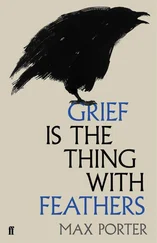“You can tell her yourself,” said Gob, and they walked down to the fountain. It was made in the shape of Notre Dame. Will marveled at it, at how the champagne ran down off the high towers to trickle into a very abbreviated Seine.
“To loose morals,” toasted Gob, as he and Will took their first glass of champagne.
“To Parisian carousing,” said Will. “Wasn’t it Mr. Jefferson who said a little debauchery every now and then is a good thing?”
“Actually, I think that was my aunt,” Gob said. He turned his head to point his long nose at a box over the stage, where a woman dressed as a shepherdess was standing with two more naked-legged ballet girls and two men in plain evening dress. “There is my mother,” he said, smiling. Usually he scowled at her, but tonight, Will knew, he was in a very happy mood. He thought the building was going very well, and did not seem to mind that the machine did no apparent work.
Up in the box, Mrs. Woodhull waved her crook at them. Gob bowed. Will raised his glass to her. “Shall we go up?” Gob asked. Will said he would follow in a moment. He looked around for Tennie, worrying, briefly and irrationally, that she might grow angry at him for ogling all the loose women. But she was not a jealous person. The idea that they might be true to one another was ridiculous to her. Will would have liked for them to be married in spirit or practice, if not in name, but she would have none of it, and anyhow whenever he tried to be faithful to her he failed. Gob’s view of the situation was simple. “She is too much, my friend,” he’d say. “You should give her up.”
Will approached the ballerina, who had been abandoned by her lover of the minute and was staring forlornly at Notre Dame.
“Mademoiselle,” he said. “Aren’t you an actress? Didn’t I see you in Mazeppa?”
“No,” she said, hurrying away from him. “I think you did not.” Will dipped his glass again and sat on the edge of the pool. He looked down at the bubbles clinging to the side of his glass, and it seemed to him that the way they let go and rushed up to burst at the surface must be like the motion of souls flying off of the earth. Jolly sat next to him, his head jerking this way and that.
“Not everyone has the good sense to appreciate a fool.” Will looked up and saw Tennie struggling under a gargantuan wig, fully four feet high, studded with boats and dolphins and, high above all, an angry golden sun face. “Do you like my coiffure?” she asked him.
“It’s large,” said Will. She smiled, cracking her pancake makeup. She wore a black silk mask over her eyes. She lifted it up briefly to wink at him and whisper, “It’s me, Tennie C.”
“I thought you were Mrs. Astor.”
“This wig will snap my neck, soon, and then my good time at the ball will be ruined. Well, I did not come here anyway to enjoy myself.”
“Didn’t you?”
“No,” she said. “I came tonight to observe. Vicky is going to write an article for Mr. Bennett and I am going to help. We will expose all these panting dignitaries who think a mask is shelter for hypocrisy.”
“Are there famous people here?”
“Oh yes.” She put her hands up a moment to adjust her wig. “But come with me, I need to steady my coif.” She walked over to a wall and leaned her head back against it. “There,” she said, taking the glass that Will offered. “Thank you. See over there? That Cardinal Richelieu is Mr. Bowen, of Brooklyn. And there, the musketeer who licks his lips so often, that is Mr. Fisk.”
“Is Mr. Whitman here?” Will asked.
Whitman was Gob’s friend. Gob had a plan for him. He’d use him as a battery in his machine, a horrifying notion, at first, to Will, though Gob was unperturbed by it. When Will suggested that it might be wrong to use Mr. Whitman so, Gob looked confused for the first time since Will had known him. “I don’t understand,” he’d said.
“Mr. Whitman certainly is not here,” she said. It was clear to Will that she admired the poet. “He would not come to a place like this. Are you an admirer or a detractor?”
“A detractor, I think. He is a fool who goes about in a costume and pollutes our literature with ceaseless exclamations.” It gave Will pleasure to insult the man, because he disliked the very notion of him. How could someone so thoroughly silly be so vital to the machine? Will had come to know that he was not himself a genius — not someone like Gob who could intuit all the possibilities of matter — but merely a hard worker, and he resented people like Mr. Whitman who claimed to approximate the divine function of creation when all they really did was take notes on the fevered wanderings of their undisciplined minds.
“I suppose there is no solidarity among fools,” Tennie said tartly. She nodded at a headless Marie Antoinette, who walked by just then and waved at them. “That was my friend Mrs. Wabash. And there is Madame Restell. The ball is made officially wicked by her presence.” Will looked at the pudgy little queen she indicated, wondering if it really was Madame Restell, the abortionist of Fifth Avenue. She raised an eyebrow at him as she passed.
“Anyhow,” Tennie said, “I must return to my work. You are charming but not famous, and I am already familiar with your vices. There’s Mr. Challis, the broker — I’ll follow him.” She stepped away from the wall, swaying under her wig. “Those antique French ladies, what necks they must have had!” She handed him her glass and went in pursuit of Mr. Challis, who was watering himself at the fountain. Will watched her strike up a conversation with him. She touched his arm and leaned on him. She spoke something directly into his ear that made him burst out laughing, so loud Will could hear it even at a distance.
On the floor, people were dancing, throwing themselves around with wild abandon. Jolly was among them, his eyes closed and his head thrown back rapturously, dancing unpartnered, unseen and untouched by the living. Sam had joined him. He beckoned to Will, smiling — he had become more friendly as work on the machine progressed. Now they were close, or at least he stood close sometimes, often just inches away. Will figured it a reward for his untiring work on the machine. He watched them for a little while. Their beckoning was more seductive than the flashing legs of the ballerinas. “They command you, don’t they?” Gob had asked once. Will hadn’t answered right away, but he had thought, Shouldn’t they? He was still a physician and a photographer, but though he still labored at these professions, they were no longer his work.
Days later, he’d answered Gob’s question. They sat close together at his long table, both of them eating directly from the same roast chicken. Gob said, “What will we eat, after we are successful? If cutting off the chicken’s head only makes it uncomfortable, then what are you left with for dinner? Cabbages?” Will put down his fork and knife and drew patterns on the table with his greasy finger.
“I think they command us all,” he said after a while.
Wheel, lever, pulley, wedge, screw — all through winter, Will mastered simple machines. Gob would present him with one and then demand that he describe its properties mathematically, and after a few months of Gob’s persistent tutelage, Will was able to build a machine of his own. Nothing like Gob’s engine, it was just a humble plumping mill.
One evening Will arrived in the workshop to find a gift of lumber stacked on the stone floor. From the pile he chose a pole, a slim birch trunk with the bark still on it. To one end of the pole he attached an ironwood mallet, to the other an oak water box. He then drilled a hole in the middle of the pole, and slipped a heavy dowel through. Will’s machine was a peculiar-looking thing — it might have been the weapon of some giant hairy god who lived in the woods, worshiped by animals and trees.
Читать дальше












